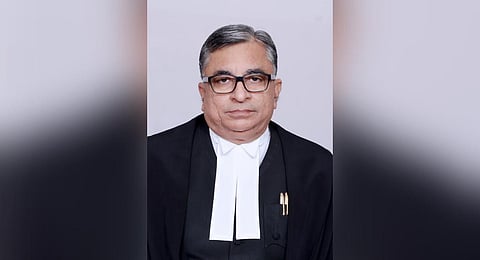

Justice Krishna Murari, who retired as the Supreme Court judge earlier this month, speaks to Shruti Kakkar about a range of issues such as the Uniform Civil Code, the disqualification pleas against pro-Eknath Shinde group of MLAs in Maharashtra and the collegium system of appointment of judges in the higher judiciary.
Excerpts:
You have been in the legal field for nearly 42 years, including four years as an SC judge. What changes should have happened, and what can happen?
There have been changes, and many more are required. The most important thing is the disposal of cases because of the pendency of cases. This is the first area that needs to be taken up on a priority. We have tried our best, but more needs to be done. There is a major technological upgrade taking place that can change the face of justice delivery system.
The Centre plans to implement the UCC. The move is being widely criticised. What is your position?
Before any decision is taken on the UCC, it requires a very large consultation with the public. The views should be put on record before any decision is taken, and those views should be taken into account before Parliament brings in any legislation. In a democracy, it is ultimately the will of the majority that prevails. But all views should be heard before a decision is taken. The Law Commission is already in the process of doing so, as it has extended the date for submission of opinions. This consultation should not a thorough and inclusive process.
A slew of legislations will be replaced if the UCC becomes law. Would this not impact the religious freedom guaranteed by the Constitution?
Religious freedom or any fundamental right guaranteed under the Constitution is not absolute. It is subject to certain restrictions. Yes, there is freedom to practise your own religion. If for some reason, I am not advocating it, but if there is a situation where such freedom starts interfering with society at large, then it requires to be considered.
You were a part of the bench that directed the Maharashtra Speaker to decide the disqualification pleas within a reasonable time, it hasn’t been done until now…
Out of respect for the Speaker, who is also a constitutional authority, the bench did not think it fit to make him time-bound. He should have honoured the verdict of the highest court of this land. I would not like to say more because the matter is sub judice. There are instances when the apex court was compelled to issue directions to the Speaker, but why allow that situation?
What, according to you, should be a “reasonable time” within which the Speaker should decide?
There is a procedure prescribed under the rules of every legislative assembly. The Speaker is duty-bound to follow that procedure. Reasonable time would be “any time which is reasonable” within the facts and circumstances of the case.
What are your views on the current system for selecting judges for the higher judiciary?
Since all information is not available to the public, there is a perception that the collegium system is opaque. If the collegium considers two names and recommends one, and if it starts giving reasons as to why it has chosen one over the other, then imagine the reputation of that person who has not been chosen.